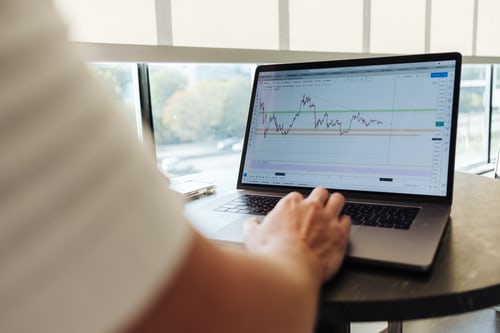Online trading has made it popular and accessible to invest in shares and forex, and these are options beginner and advanced traders exploit alike. Those investors looking into diversifying their portfolio may try other assets, among which we often find CFDs. But, what are CFDs?
CFD stands for Contract for Difference and when we talk about CFD trading we refer to the buying and selling of CFDs. Basically, traders are exchanging the difference in the price of a contract between the time such contract is opened to the moment it is closed.
Benefits of investing in CFDs
The main benefit that attracts many traders to this investment is the fact that they don’t need to own the asset in question, but estipulate in the price movements. CFDs are independent of the value of the asset and that represents an interesting advantage for some traders.
There are other benefits of trading CFDs that are worth mentioning:
- Higher leverage
CFDs usually enjoy rather higher leverage, allowing traders to maximize their chances to make a more significant profit. When it comes to trading CFDs, leverage may be as high as 30 to 50 percent, which is considerably higher than trading other assets.
While higher leverage is an attractive aspect of CFD trading, it must be noted that higher leverage may also imply higher risk.
- No shorting limits and available risk management tools
Compared to other types of trading, CFD trading is also interesting due to no shorting limitations. CFDs can be shorted at any time. This is possible since the trader doesn’t own the underlying asset.
Additionally, there are tools like “stops” and “limits” that prevent traders to lose more than what they can afford in investing in CFDs. Since they are investing in the spread (the price difference) there are also lower fees and some brokers may offer fixed spreads.
- Trading assets variety
CFDs can be applied to many different assets, like stocks, index, currency, and commodities. This provides traders with an interesting variety of options when it comes to trading.
Disadvantages of CFD trading
We cannot fail to mention a few disadvantages that come from CFD trading. One that worries some traders is the fact that the industry is poorly regulated. Seems like the strict rules that regulate other types of trading do not apply to CFDs and this means that traders have to take the extra time to research the CFD broker they are planning to use in order to make sure they will perform accordingly.
A little like with any other type of trading, CFD trading comes with risk, and maybe it’s a bit higher than with other assets. Leverage, while useful, takes the risk to another level, and there is no doubt that CFDs need to be closely monitored and assessed to avoid losses.
The higher risk and poor regulation are so serious that CFDs are banned in the US.
Why invest in CFDs?
Trading CFDs is rather simple and while different from buying and selling shares, for example, there are certain advantages, like access to higher leverage, that will attract traders looking to diversify their investment portfolio with trades that may come with a little extra risk but certainly some advantages as well.
To make sure you, as a trader, are investing safely we recommend CFD trading on finecobank.co.uk, a serious institution that has a long reputation, guaranteeing that your information, and your money, are safe, especially considering CFD trading is not heavily regulated, finding a serious and reputable broker is a must.





